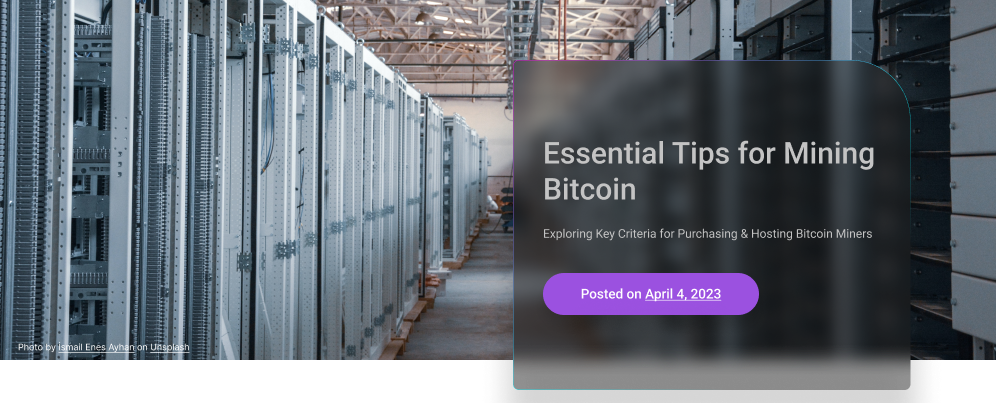Bitcoin mining has become a lucrative venture for those willing to invest in the right equipment and infrastructure. But with so many options out there, choosing the right miner and hosting location can be a daunting task. In this article, we’ll provide some essential tips from experts in the industry to help you make the most of your investment.
Power Cost and Location Considerations
Electricity is the largest expense for Bitcoin miners, and selecting the right location can significantly impact your profitability. While low power cost is crucial, it’s also essential to consider political, regulatory, and security factors. Let’s take a look at some of the best locations for mining BTC:
- North America: North America has become an increasingly popular destination for BTC miners due to its relatively stable political environment, low electricity costs, and favorable regulations. Some of the best locations in North America for BTC mining include Texas, Wyoming, and Montana.
- The GCC: The Gulf Cooperation Council (GCC) countries, including Saudi Arabia, Kuwait, and the United Arab Emirates, have also become popular destinations for BTC mining due to their low electricity costs and favorable regulations.
- Scandinavia: Scandinavia is another popular destination for BTC mining due to its cool climate, which makes it easier to keep mining rigs cool without using excessive energy. Sweden and Norway are particularly popular locations for BTC mining due to their low electricity costs and abundance of renewable energy source.
- Iceland: Iceland is another popular location for BTC mining due to its cool climate and abundance of renewable energy sources. In fact, nearly 100% of Iceland’s electricity comes from renewable sources such as geothermal and hydroelectric power.
When choosing a location for BTC mining, it’s important to consider factors such as electricity costs, political stability, regulatory environment, and access to cooling solutions. By carefully weighing these factors and choosing the right location, you can maximize the profitability of your BTC mining operations.
The Importance of Battle-Tested Miners
Choosing the right Bitcoin miner is crucial, and going for the most profitable miner or the latest model can be tempting. However, it’s wiser to stick with BTC miners that have been battle-tested for at least six months with minimal negative feedback. The Bitmain Antminer S19 series and Whatsminer M30/M31/M50S are examples of such miners. These models provide faster ROI, worry-free service, and endless options for overclocking/underclocking using aftermarket firmware and multiple cooling solutions. Plus, you can resell them for a profit when it’s time to upgrade.
Timing Your Miner Purchase
The timing of your miner purchase can also have a significant impact on your profitability. Buying during a bear market, when prices are lower, can help you achieve a faster ROI and maximize your investment. It’s difficult to ROI and profit on a miner purchase during the bull market when prices are 5-10x their regular price. Real-world examples demonstrate this: miners who purchased during the bear market of 2020 achieved a faster ROI than those who purchased during the bull market of 2021.
Avoiding Altcoin Miners
Although altcoin mining may seem tempting on paper, it’s rarely profitable in practice. Manufacturers often flood the market with oversupply, increasing the difficulty to the point that it’s usually unprofitable by the time you receive it. Mining altcoins is speculative and should not be your bread and butter. There’s a reason why all institutional miners mine BTC only.
Purchasing Bitcoin miners requires careful consideration of several factors, including power cost and location, sticking with battle-tested BTC miners, avoiding altcoin miners, and timing your purchase carefully. By following these essential tips from experts and considering the benefits of the S19 and Whatsminer miners, you can purchase high-quality Bitcoin miners that will help you achieve your mining goals and succeed in the dynamic and ever-changing world of cryptocurrency.

